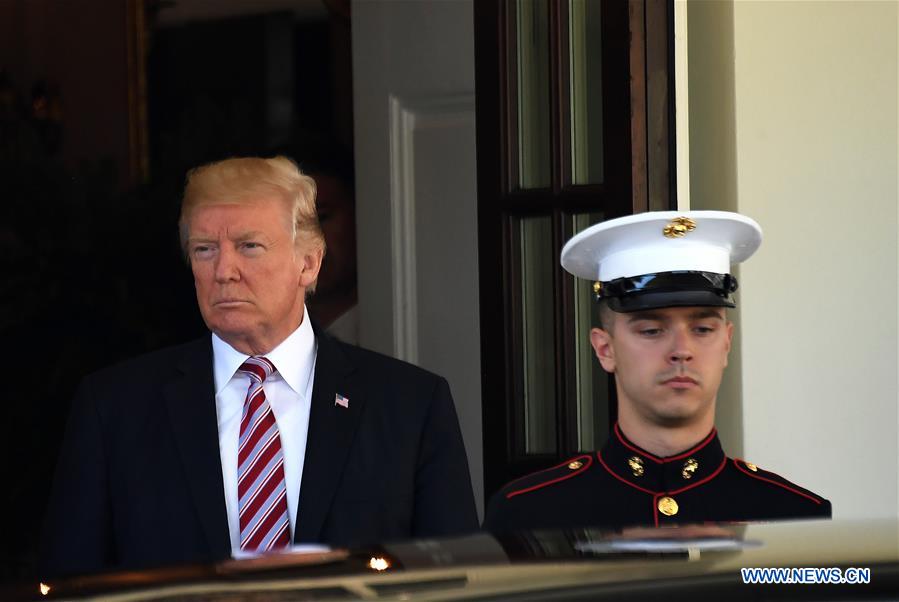
U.S. President Donald Trump (Xinhua file photo)
by Matthew Rusling
WASHINGTON, Sept. 29 (Xinhua) -- After losing his first attempt at passing major legislation, U.S. President Donald Trump is pushing tax reform, in a bid to pass an overhaul of the tax system.
Trump last week suffered a big loss after the fight to repeal and replace the previous administration's healthcare law, known as Obamacare. After eight months on the job, the billionaire-turned-president has so far been unsuccessful in passing the legislation that supporters elected him to do.
But analysts, politicians and political forecasters say that enacting tax reform will be a much easier task, as both parties agree that the tax system must be updated.
In a speech on Wednesday, Trump gave a general outline of his tax plan, saying it would help Americans financially, at a time when parts of the nation have still not fully recovered from the 2007-2008 economic downturn.
Some experts are positive on the plan.
Adam Michel, an economic policy analyst at the Heritage Foundation, noted in an email to reporters that "tax reform that follows the outline we heard yesterday will deliver significant benefits for all Americans."
"The outlined tax reform will make America globally competitive again, attracting investment and businesses from around the world. This will raise wages, increase job creation, and create untold additional opportunities for Americans," he said.
The general outline of the rest of the plan is also encouraging, he said, citing lower rates for individuals and simplification of the very complex current system.
"All of these things help all Americans. Although we don't have many of the necessary details to comment on who is helped the most, the framework and comments made yesterday make it clear that this plan is intended to be a tax cut for all Americans," he said.
Alan Viard, a resident scholar at the American Enterprise Institute, said the issue is complex. By itself, Trump's proposed lower corporate tax rate will draw investment to the United States.
However, the increase in the deficit due to the plan's revenue loss could drive up interest rates, which would actually reduce investment, he told Xinhua.
Furthermore, future tax increases may be needed to service the additional debt, and those tax increases would be likely to reduce economic growth when they are adopted.
So far, it is not clear that the individual tax changes would have much economic effect, at least based on the limited information in the framework. Key elements of the plan have not yet been spelled out, he added.
The issue comes as much of the nation has still not fully recovered from the recession that sent the global economy reeling nearly a decade ago.
While Silicon Valley and Wall Street have reacted positively to Trump's election, the issue of corporate taxes is a thorn in the side of many businesses. U.S. corporate taxes are among the world's highest, and critics say that has put a damper on companies' hiring power, as well as their ability to boost growth in U.S. Gross Domestic Product.
Critics of Trump's tax plan say -- rightly or wrongly -- that Trump is only concerned with giving a tax break to the wealthy. Still, on Thursday Republicans were already backing away from such a stance, although the details are still scanty.

















